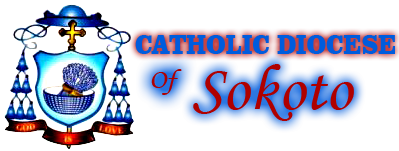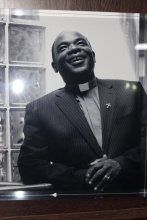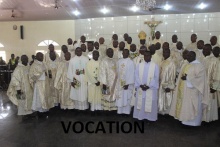Bishop Matthew Hassan Kukah is in New York raising awareness about the plight of Nigerian Christians
Bishop Matthew Hassan Kukah of Sokoto, Nigeria, said Islam “has to rescue itself from extremists.”
The bishop made the comments in an interview with Catholic New York during a visit to the archdiocesan newspaper’s offices at the New York Catholic Centre in Manhattan.
He was in the United States to raise awareness of the plight of Nigeria’s Christians in his home diocese in northwestern Nigeria.
Between 97 per cent and 98 per cent of the region’s population is Muslim and Sharia law is in place.
Bishop Kukah was visiting the United States at the invitation of Aid to the Church in Need, a Brooklyn-based international Catholic charity under the guidance of the Vatican whose mission is to help suffering and persecuted Catholics worldwide.
That same day, the bishop was a featured guest on New York Cardinal Timothy Dolan’s radio programme, Conversation With the Cardinal, on the Catholic Channel on SiriusXM satellite radio. Cardinal Dolan said, “We hear a lot about Boko Haram. We hear a lot about the persecution of Christians.”
Boko Haram, a radical Islamic terrorist group with ties to Islamic State, bears responsibility for numerous violent attacks in the African nation.
It attracted worldwide media scrutiny for its 2014 kidnapping of 276 schoolgirls from Chibok in northeastern Nigeria.
The Diocese of Sokoto is home to just 32 parishes and 36 priests. Despite the threat of conflict and strife, Bishop Kukah said, daily life in his diocese is not solely “a gloomy tale of war.”
“We must always remember that for about 360 or so days of the year we are living ordinary lives,” the bishop said.
Cardinal Dolan, backing up his fellow prelate’s statement, noted that parishes in the United States “benefit from the church in Nigeria, from their good priests, their sisters and their people that are here.”
The religious statistics in the northern portion of Nigeria don’t tell the whole story. In other parts of Nigeria, the percentage of Christians is around 42 to 45 percent, the majority of whom are Catholic, Bishop Kukah said.
Christians are treated almost like second-class citizens because “of the corruption of the Nigerian state itself,” the bishop said. The country’s problems are more about power than religion, he said.
Persecutions come from corruption within the state itself and those who govern it, he said. As an example, he said that Christians in the area are often denied access to land to build more churches, schools and health care centres.
Bishop Kukah is attuned to politics and government. He has served as a member of Nigeria’s Truth Commission, which investigated and recommended appropriate redress of human rights violations that had been committed between 1966 and 1999. It issued a report in 2002. The bishop also has served as secretary of the Political Reform Conference for Nigeria and was formerly a member of Nigeria’s Electoral Reform Committee.
The bishop said that inter-religious dialogue and Catholic education are two ways that the Church can combat corruption and the culture of bigotry and violence in Nigeria.
“Our final objective is a cohesive nation,” the bishop said. “For us as Catholics, we have to build the common good.”
He said that the church should do “what we do best to create a much more stable society.”
Creating more Catholic schools in the region for both Christian and Muslim students is a good place to start, he reasons. “We want this to be how they interact,” he said. The idea is not to convert Muslim students, he said, but rather to allow students to learn side by side and interact with one another without hostility or fear.
“The opportunities are huge,” he said, to also educate and introduce students to “the values of the Catholic church.”
“Religion can and should be a force for good,” he said.
Source: catholicherald.co.uk


